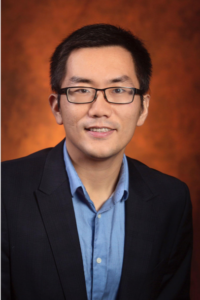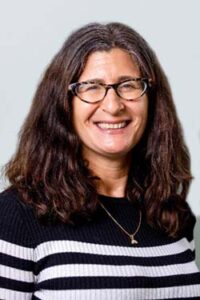
School of Information Associate Professor Dr. Zhe He was part of a research team that recently received a five-year $801,110 R21/R33 Phased Innovation Award from the National Institute of Mental Health of the National Institutes of Health (NIH). This award will fund a project designed to tackle the HIV epidemic among youth in North Florida through an innovative, community-engaged approach. The title is “Precision HIV Prevention: Piloting a youth learning health community”.
“It feels like a significant acknowledgment of the importance of our work in addressing the HIV epidemic among youth, particularly in underserved areas like North Florida,” He said. “We are thrilled to have the support to move forward with this project, and we are optimistic that it will pave the way for more effective, scalable interventions that can be implemented in other regions facing similar challenges.”
He is working alongside Dr. Sylvie Naar (FSU College of Medicine) on the project, with Dr. Naar serving as the Contact Principal Investigator and Dr. He as the Multiple Principal Investigator. The study team also includes Henna Budhwani (FSU), Jonathan Morgan (FSU), Sara Green (FSU), Yiyang Liu (University of Florida), and Mattia Prosperi (University of Florida).

Despite advances in HIV prevention, many young people continue to face significant barriers to accessing and adhering to effective prevention strategies such as Pre-Exposure Prophylaxis (PrEP). North Florida is characterized by high HIV prevalence but has fewer resources and research activity compared to other parts of the state.
To address this critical public health challenge, the project aims to establish a Youth Learning Health Community (Y-LHC) in North Florida, integrating data science, implementation science, and community engagement to meet the unique needs of the youth population and develop tailored, evidence-based HIV prevention strategies. The project will involve mapping barriers and facilitators to HIV prevention, conducting simulations to identify the most effective interventions, and piloting these strategies in real-world settings to ensure they are feasible, culturally appropriate, and impactful.
“Our work not only addresses the current gaps in prevention efforts but also aims to build a sustainable model that can be replicated in other regions to improve HIV prevention outcomes for young people,” He said.
The long-term goal of the project is to establish a future where the Youth Learning Health Community model can be replicated in other high-need areas, ultimately reducing new HIV cases among youth and promoting a more inclusive, data-driven approach to public health interventions. Dr. He expressed optimism about the potential impact of the project: “This award sets the stage for impactful, long-term research that can truly transform HIV prevention and care for young people.”

